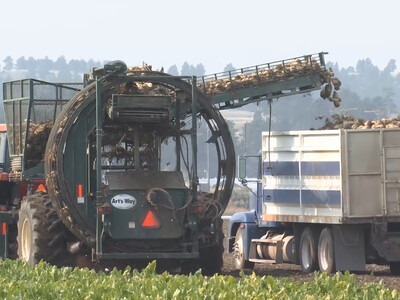Bee Buzz
According to recent studies, declines in wild and managed bee populations threaten the pollination of flowers in more than 85 percent of flowering plants and 75 percent of agricultural crops worldwide. Widespread and effective monitoring of bee populations could lead to better management; however, tracking bees is tricky and costly. Now, a research team led by the University of Missouri has developed an inexpensive acoustic listening system using data from small microphones in the field to monitor bees in flight. The study, published today in PLOS ONE, shows how farmers could use the technology to monitor pollination and increase food production."Causes of pollinator decline are complex and include diminishing flower resources, habitat loss, climate change, increased disease incidence and exposure to pesticides, so pinpointing the driving forces remains a challenge," said Candace Galen, professor of biological science in the MU College of Arts and Science. "For more than 100 years, scientists have used sonic vibrations to monitor birds, bats, frogs and insects. We wanted to test the potential for remote monitoring programs that use acoustics to track bee flight activities."


















